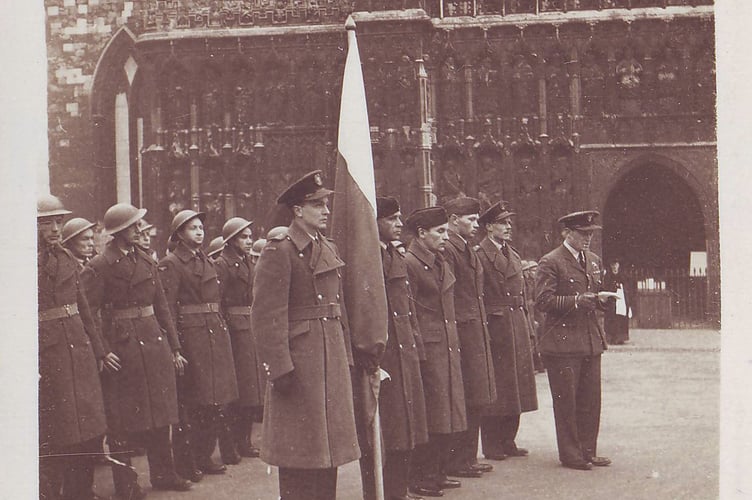Polish pilots who protected Exeter between 1941 and 1943 are to be remembered with two events in November in the city.
The 307 Squadron, named the Night Fighters for their proficiency as pilots, defended South West England during WWII and their efforts preventing Exeter from being totally destroyed during the Blitz in 1942.
‘Night Fighter - the story of 307 Squadron’ takes place over November 14 and 15 and has been organised by 307 Squadron Project, with support from Exeter City Council. The two-day exhibition is being presented in English and Polish and includes the story of the Polish 307 Squadron, the history of RAF Exeter where 307 Squadron were based from 1941-1943 and the Polish D-Day Story: 80th anniversary.

The servicemen are also remembered in a civic event in Exeter on November 15. Known as 307 Squadron Day, the Lord Mayor of Exeter will raise the Polish flag in a ceremony attended by the Lord Mayor of Exeter, Exeter City councillors, Honorary Consul to the Polish Embassy, Doctor Simon Selby and various Polish organisations, and relatives of the squadron members. The event begins at the Guildhall at 10am and is open to the general public.
Michael Parrott founding member of the 307 Squadron Project said: “This annual ceremony reminds Devon of the crucial role that the Polish 307 Squadron played in defending the county and the wider south-west of England from enemy bombers at night during the darkest periods of the war for Great Britain.
.jpeg?width=752&height=500&crop=752:500)
“The raising of the flag, as well as representing the Polish squadron, also reminds of the good that can happen when countries cooperate.
“307 Squadron Project are honoured to be involved in this ceremony and to hold our public exhibition at The Guildhall in Exeter.”
Michael came across the story of the squadron by accident in April 2012 when he discovered a plaque in the chapel of the city's Higher Cemetery in memory of a squadron airman.
The project, a British-Polish registered charity, was established to carry out further research on the squadron and promote cooperation between the two nations.
The Polish servicemen left their home country after the Germans invaded in 1939 and planned to continue their efforts to combat Germany in France. When Paris was occupied in 1940, the pilots made their way to Britain.
The airmen, known as the Lwow Eagle Owls, were said to have inherited the traditions of the Polish pre-war 6th Aviation Regiment stationed in Lwow, now Lviv in Ukraine.
Their role was to defend the towns and coast of South West England from nighttime enemy air attacks. The flights were made in Defiants, Beaufighters and latterly in Mosquito aircraft, and covered a wide area from Plymouth to Dorset and up to South Wales as well as the Channel and the Channel Isles.
Michael said: “My curiosity got the better of me, and now, twelve years later, the squadron has become more well known here in Devon, as well as elsewhere in Great Britain, and internationally including Poland.”




